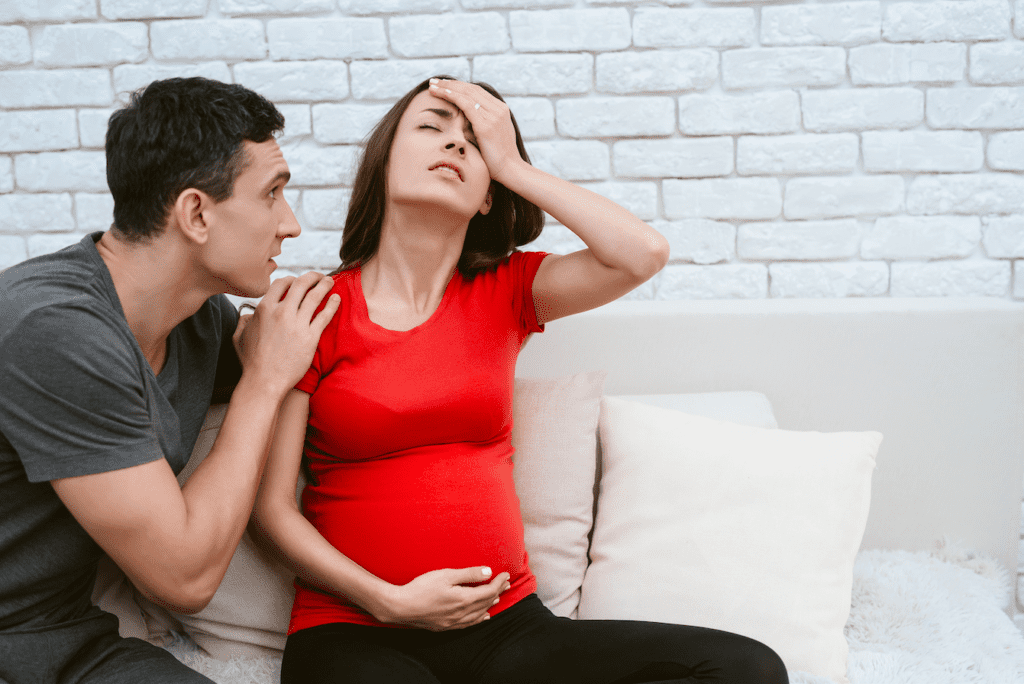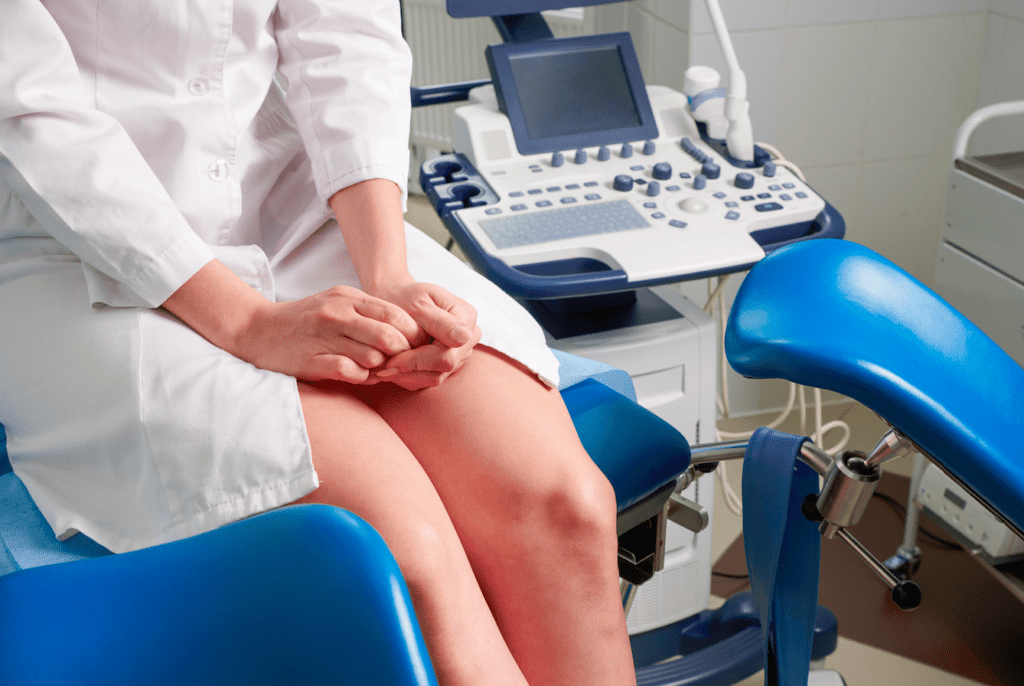Risk of Miscarriage and What You Should Do
After an ultrasound detects the presence of a heartbeat, the chances of a miscarriage drastically drop. However, how you live, your age during pregnancy, and other health factors can cause or increase the chances of miscarrying.
Medical practitioners define miscarriage as a natural pregnancy loss before the 20th week of the gestation period. Most of them are caused by a chromosomal abnormality that prohibits the proper growth of the fetus. The common belief is that a miscarriage is more unlikely to happen if the sonographer detects a heartbeat than when none is yet available.
An ultrasound can detect the heartbeat after the fifth week. It is not yet fully developed, but the myocardial muscles start to contract at this point in pregnancy, hence the beating.
The following health information will shed light on:
- Risk of miscarriage after a heartbeat
- Chances of miscarrying in different pregnancy conditions
- Miscarriage risk factors
- How to reduce chances of a miscarriage risk
- What happens after a miscarriage?
- Risk of miscarriage for a second time
- Miscarriage rates and having a baby again
- Coping after a miscarriage
Risk of Miscarriage After a Heartbeat
Out of all miscarriages, 80% of them occur before week 12 in pregnancy. On the 80 percent, 50-70% happen unknowingly to the pregnant women early in the first trimester. Data shows the risk of miscarriage falls to 5-10% upon noticing a fetal heartbeat during an ultrasound.
The heart rate has to reflect many kicks to lower the chances further or rule out the possibilities. A low heart rate may relate to the miscarriage’s impendence, making it a more significant concern. The presence of a heartbeat does not mean that it will not occur later in the gestation period.
A lower risk of miscarriage applies if you have a healthy pregnancy with no recurrent spotting, cramping, and pregnancy symptoms are showing. There should be an average fetal heart rate of over 120 beats per minute in the passing weeks of gestation.
However, miscarriages depend on other conditions, too, especially first trimester miscarriages unrelated to heart rate. Namely, the following conditions may significantly increase the miscarriage rate in the first trimester and even cause recurrent pregnancy loss or stillbirths. This is why the information below is vital to note.
Miscarriages In Different Pregnancy Conditions

Statistics help us understand the causes of a recurrent miscarriage in the early weeks of pregnancy, experiencing an ectopic pregnancy (pregnancy outside the uterus), and stillbirth. Studies have shown that most first trimester miscarriages are directly linked to the age of the women.
- No vaginal bleeding: After the heartbeat, statistics show that miscarriages drop to 4%.
- With vaginal bleeding: Ectopic pregnancy is possible. If ruled out and a heartbeat is detected, the chances for a miscarriage are about 13%.
- History of previous miscarriages: If it has happened to you before, the chances go up to 17%. Asymptomatic women should often have office ultrasonography because they may not have felt a previous or even recurrent miscarriage.
- Women of 35 years of age or older: Women under 35 have about 4% for a stillbirth, ectopic pregnancy, or miscarriage. The information shows that women above 35 years of age have a raised risk to about 16% after heartbeat detection.
- Women in their 40s or older: Pregnancies at 40 or above increase the risk to 20%. They are expected to have more severe morning sickness, especially by the 8th week of pregnancy.
Miscarriage Risk Factors
Any woman can have a miscarriage, but other factors may place her at a higher risk than others. The risk factors include:
- Age: Women of age have a higher chance of conceiving a baby affected by the chromosomal disorder and miscarry at any point during pregnancy. According to statistics, women above 40 years of age are twice as likely to experience pregnancy loss than women in their 20s. The risk is higher if you already have a baby.
- Chronic disorders or diseases: If you have diabetes that is not always under treatment, miscarrying is possible. Also, other ailments like blood clotting issues, hormonal and autoimmune disorders such as lupus will increase the risk of a miscarriage.
- Previous miscarriage: If it has happened to you in the past, the chances are that you are more likely to miscarry the moment you get pregnant again.
- Genetic problems or congenital disabilities: If any family member, including your partner, has a genetic disorder and a previous pregnancy or birth of a baby confirmed the same, the risk of miscarrying is higher.
- Cervical or uterine issues: Possessing a congenital uterine abnormality, weak or abnormally short cervix, or extreme uterine adhesions due to scar tissue band increases the odds of a miscarriage. However, researchers do not relate uterine fibroids to cause any problems despite the controversial belief.
- Infections: Medical practitioners will place the risk at a higher rate if you have any of the following contaminations: measles, mumps, listeria, rubella, parvovirus, HIV, gonorrhea, or cytomegalovirus, among others.
- Environmental factors: Data shows that certain toxins will put your pregnancy in danger, such as exposure to arsenic, lead, and chemicals like ethylene oxide, formaldehyde, and benzene. A large radiation dose may also put you at risk.
- Paternal factors: Little research confirms the father’s issues in contributing to the miscarriage risk, but there is a sign of the threat brought by your partner’s age. Researchers are still studying how sperm can fertilize an ovum despite being damaged by environmental toxins. The risk is higher if there is a sign of lead or mercury exposure for the father.
- Diagnosis: The risk here is small but slightly increases when a physician conducts amniocentesis and chorionic villus sampling, which may be required for genetic analysis.
- Obesity: Though not yet confirmed, studies relate a miscarriage to weight gain.
- Conceiving too soon: Additional information on pregnancy losses shows that the risk of miscarriage is increased when women get pregnant just a trimester after delivery.
How to Reduce the Chances of Getting a Miscarriage

The following measures will lessen the miscarriage chances of happening and also prepare you for a healthy pregnancy.
Before and After Pregnancy Preparation
- Clean eating: Women need to consume plenty of vegetables and fruits.
- Omega-3 fatty acids: Go for cold-water fish with omega-3 fatty acids in abundance to balance hormonal levels. They also contribute to the healthy brain development of the baby. Avoid fish containing mercury.
- Use organic dairy products and avoid soy: It is known that pregnancies suffer fromexcessive estrogen. So, avoid things like soy. It disbalances the hormone levels and induces blood clots. Take grass-fed beef and chicken free of antibiotics.
- High fiber foods: Food rich in fiber will help balance the hormone and sugar levels. They also help reduce constipation. Consider taking beans, veggies, whole grain cereals, and fruits.
- Plenty of water: Your blood level increases as the fetus continues to grow. Drink 2 liters a day at least.
- Sugar intake reduction: More sugar means higher blood sugar levels, which is not good while pregnant. Things like cookies and other high-carb foods weaken your immune system.
What To Do Before Conceiving
- Complete doctor checkup: Complications such as diabetes, less reproductive and thyroid hormones, and STIs can risk a miscarriage. Getting tested will result in early treatment and medication to decrease the risk before you get pregnant.
- Folic acid intake: Women need to take folic acid as it prevents disorders in pregnancies. It keeps the neural tubes healthy and safe from malfunctions caused by the spinal cord. For healthy pregnancies, daily consumption of 600mg of folic acid, 1-2 months before conceiving, no matter the age.
- Reduce caffeine consumption: Not only does it affect your fertility, but caffeine is also another risk factor for a miscarriage.
What To Do After Getting Pregnant
- Regulate your exercises: Be active during pregnancy. Practicing yoga will suit you best. Avoid lifting heavy objects that can strain the abdomen muscles and cause a temperature rise. Do not do strenuous physical activity during this time.
- Avoid raw meat, seafood, and unpasteurized foods: Eating food that is not adequately cooked can cause infections such as listeria.
- Keep calm: Engage in activities that reduce stress levels. Stress risks miscarriage because it increases blood pressure.
- Progesterone therapy: If you have experienced a miscarriage before you are at a later age or have hormonal issues, you will benefit from this kind of treatment. It will aid in stabilizing the hormone levels when pregnant and also prevent an early loss of pregnancy.
- Be free from radiation and toxins: Harmful substances such as arsenic, lead, and benzene is harmful to the fetus. If you need an x-ray, inform the doctor about pregnancy if it not already evident. The rays are not suitable for fetal development, and the procedure should only be in emergency cases.
What Happens After A Miscarriage?

You may pass the materials yourself or have them removed, but there will be mild cramps for a day and spotting for the next 1-2 weeks after the tissue passage. Use pads, not tampons, for bloodshed and reduce the cramps pain with acetaminophen or ibuprofen. Also, avoid sexual activity with partners, vaginal medication, and douching for some weeks until you stop the spotting.
Heavy bleeding, infection signs such as a foul smell of vaginal discharge, fever, or excessive pain need immediate medical attention, especially by the 12th week of pregnancy.
Chances of Having Another Miscarriage
It’s normal to be worried about the first miscarriage. Fertility experts agree that one early pregnancy loss does not mean that there is something wrong with you or your man.
Regardless of your age, if you experience two miscarriages, one after another, the doctor will collect blood samples and do all necessary testing to get to the bottom of the situation. This is vital if you have medical complications or you are 35 years and above. If you happen to lose the pregnancy in the second or early third trimester, your doctor will refer you to a high-risk specialist to carefully manage your pregnancy.
The Hope of Conceiving After Miscarriage
After a miscarriage, women of any age should wait before conceiving again. The period will resume after 4-6 weeks. Some healthcare providers will consent to you getting pregnant after this period, but data shows that it is good to wait for you to experience another menstrual cycle or two. This gives you a chance to face the loss and heal too.
You need birth control pills during the recovery time to avoid fertilization after ovulating in the next two weeks or so after the miscarriage.
Coping After Lost Pregnancies

You might be physically fit to get pregnant, but your mind is not yet prepared. Some women try to divert attention by getting pregnant again, while others take some months off before conceiving. Consider taking your time to examine everything and check what is suitable for you and your partner.

